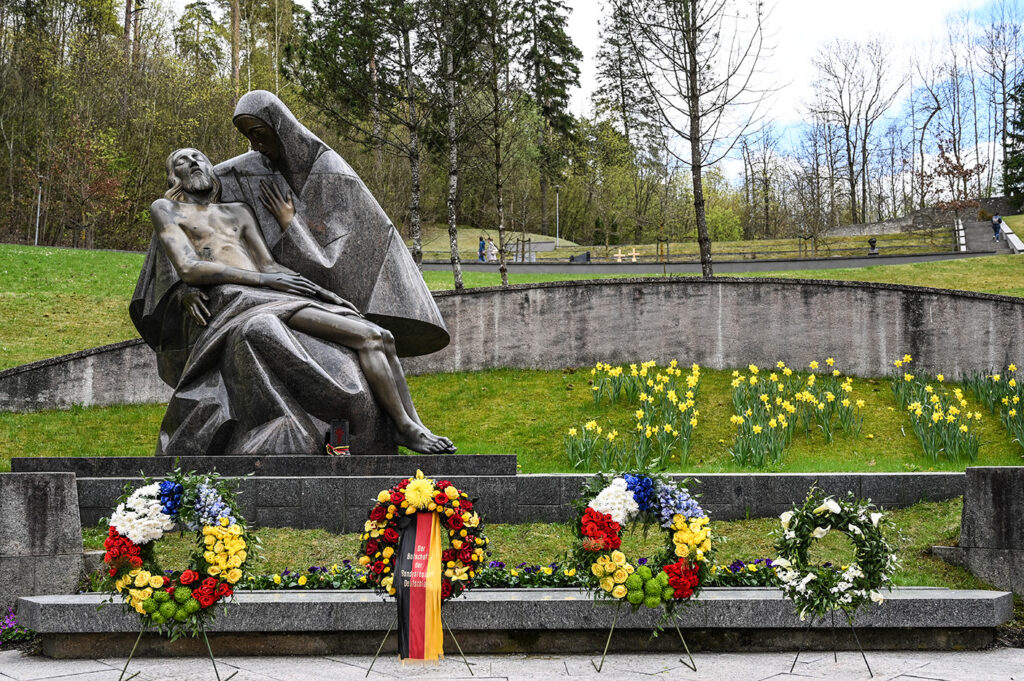Jonas Žemaitis was a wise and authoritative commander who succeeded in uniting all those who were fighting against the Soviet occupation.
Vykintas Vaitkevičius, archaeologist, historian and expert on Baltic culture, is convinced of this. He is a professor and researcher at the University of Klaipėda, the third largest city in Lithuania.
We interviewed him as part of the Žemaitis Project, dedicated to the Lithuanian partisan resistance.
WATCH THE VIDEO
The most important message to convey, according to Vaitkevičius, is that “…every fighter was a citizen, they were defenders of their country and feeling responsible for the country, they did what they thought was the best. This is how each of us should act in such a situation”.
In today’s society it is important that every citizen is aware of how important their actions can be for their country.
“This requires a breakthrough, and this breakthrough has not yet happened. It’s a shame. It is for this reason that fights for freedom are not fought only with weapons. But also, with conscience”.
Žemaitis, our mith
The professor underlines the importance of Žemaitis’ strategic and human skills.
“He manages to do what no other commander accomplished before him. Žemaitis’ leadership united the partisans who had previously been lost in disagreements, arguments and ambitions”.
To ensure that his figure becomes important in society it is necessary to create a myth. “…Myth is what is historical, what emerges, what is attractive, strong, and important. Myth provides us with current values”, says Vaitkevičius.
Žemaitis’ path was aimed at the reunification of all fighters. He succeeded.
Despite the discussions and the presence of an opposition, no one questioned his authority. He was the commander.
Today he should be a source of inspiration “…For the way he thought, the way he worked wisely and the way he entrusted the burden and honor of command to others”.
Being a commander doesn’t just mean knowing how to fight. Their abilities are above all linked to how to manage in the best way, and in difficult situations, all those who are under their command.
“The point is not to fight, to shoot at enemies. The point is to agree everything with the fighters and act in unison. And that’s what Žemaitis did”.
Personality of Žemaitis
In addition to his undoubted military and strategic abilities, Jonas Žemaitis was also a very empathetic person, who loved his family which he had to abandon so as not to put them in danger.
His bond with his son Laimutis was very strong, so much so that he tried to see him three times. Even though this could have jeopardized not only himself, but also the people around him. For many years the son did not know that his father was the commander of the partisans.
“He was a personality of the highest level, especially when he became President of the Council for the Struggle for Freedom – continues Vaitkevičius – If everything had gone differently… Žemaitis would have been Head of State and his companions would have become ministers. They would have been great statesmen”.

The memory
Vaitkevičius is working on the implementation of the Memory Program carried out by parliamentarian Paulė Kuzmickienė.
The aim is to carry out a series of initiatives to enhance the figure of Žemaitis and the resistance.
Among the proposals there is also the building of a cenotaph. A symbolic grave in the Antakalnis cemetery in Vilnius, where Lithuania’s heads of state are buried.
There is also a need to dedicate streets, films and books to the Commander.
Several things should be done, because, says the professor “…It is very sad to have to admit that Jonas Žemaitis is still little- known today”.
Žemaitis project
The interview is part of the project “Jonas Žemaitis, commander of fighting Lithuania”, created by the “Baltika-Baltijos Istorijos” Association and LithuanianStories to remember the figure of the commander, with the precious support of Kotryna Buono and Ana Luisa Monse, Žemaitis’ great-grandchildren.
The initiative is partially financed by the Ministry of Defense of the Republic of Lithuania.
The project involves a series of video interviews with figures from civil society in today Lithuania: historians, representatives of institutions, ordinary citizens, people who are interested in and pass on the memory of the partisan resistance against the Soviet occupation.
WATCH THE VIDEO

